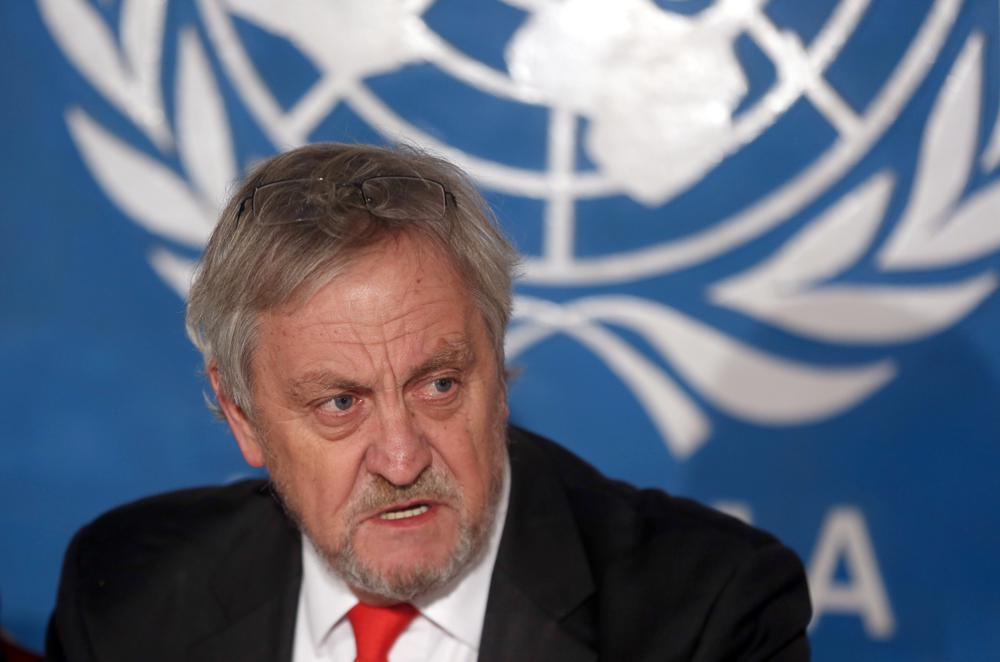 JUBA, South Sudan (AP) — The United Nations Mission in South Sudan has warned the country’s leaders not to lose sight of the pending implementation of the peace deal that could “make or break” the country” amid the ongoing crisis in neighboring Sudan.
JUBA, South Sudan (AP) — The United Nations Mission in South Sudan has warned the country’s leaders not to lose sight of the pending implementation of the peace deal that could “make or break” the country” amid the ongoing crisis in neighboring Sudan.
The head of UNMISS, Nicholas Haysom, on Wednesday said even though South Sudan’s President Salva Kiir was mediating in the Sudan crisis, he should also focus on the peace deal in his own country.
“This is not the time to take our eyes off the ball,” Haysom said. “What we can learn from Sudan is how quickly matters can unravel if neglected.”
Local media had reported that there were concerns that the conflict in Sudan was undermining the peace process in South Sudan, with Kiir now focused on mediation as opposed to implementing the peace deal.
South Sudan’s civil war started in 2013 and ended in a peace deal in 2018 leaving nearly 400,000 people dead and more than four million others displaced.
Sudan is a guarantor of the South Sudan peace process.
The UNMISS head said there was no room for inaction.
“We still see 2023 as a ‘make or break’ year for this nation, if it is to fully implement the peace agreement, which is to suggest that matters cannot be deferred to 2024,” Haysom said.
Under the political roadmap extended in August 2022, the parties agreed to hold elections in December 2024.
But the government has yet to reconstitute the constitution making process, pass electoral legislation or establish the necessary institutions and structures.
“The constitution-making process is, in our estimate, 10 months behind schedule, elections planning is eight months behind schedule, and several aspects of the transitional security arrangements are simply hanging,” said Haysom.
He added that several aspects of the transitional security arrangements remained incomplete.
According to the senior UN official, time is running out to prepare for credible elections. He added that the issue of a conducive political and civic space remains a challenge.
“You cannot really have a viable free, fair, and credible election or a free, fair, and viable constitution-making process, if people cannot talk to each other, if there is no freedom of expression, and if there is not a sort of robust dialogue between South Sudanese themselves,” Haysom unveiled.
But Haysom says they are also encouraging all those involved to address the issue of creating a free environment in which this election can take place.
“There is still some way to go. We are certainly committed to helping South Sudan meet the conditions that are required,” he said.
South Sudan’s political process remains fragile with the president and his former rival turned Vice-President Riek Machar unable to agree on issues, most recently the president’s dismissal of Machar’s wife from the defense ministry.




